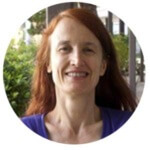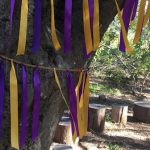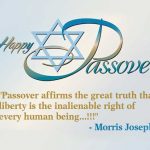
We Would Like to tell you about a very special chance to take part in Pacifica’s MA Engaged Humanities and the Creative Life:
a unique masters program for thriving in the twentyfirst century! (Chair: Dr Susan Rowland)
We offer a hybrid (online with one 4 day residential each quarter) master program designed for the challenges of the twentyfirst century in making people creative, more responsive to changing paradigms and technology, more authentic, grounded, psychologically healthy, insightful, intuitive and effective. Our age is infamous for record mental health problems, accelerating anxiety, an atomized social system and de-stabilizing technological change. Only a community with exceptional creativity skills can thrive in such conditions. Pacifica’s MA Engaged Humanities and the Creative Life was specifically devised to overcome these challenges.
As a pilot scheme, we are offering a limited number of Pacifica Alumni the chance to join single courses of this unique MA in Depth Psychology and Creativity for a small fee in Fall 2016! See below for more information about the program and the specific courses and faculty.
With a framework of depth psychology, Engaged Humanities fosters creativity in a uniquely effective way by drawing upon those aspects of the human psyche neglected by the constructs of post-industrial western modernity. The twentyfirst century needs far more than the highly rationalized and mechanistic thinking perfected in the industries and sciences of the twentieth. It also needs the imagination, capacity for the new, intuitive insight into other cultures and what is not yet fully known, the ability to dream and especially the ability to engage in deep and free flowing creative collaboration. Expanding creativity is the core of the Engaged Humanities MA, meaning the talent for making anew, for re-thinking traditional structures, for deep listening to what is said and unsaid, for generating images for the not yet known or conceived for the ability to work so intensely with others that shared visioning and collaborative worlds are made and re-made.
Our unique program therefore has three foundations: the humanities as engaged in making culture; depth psychology treating the psyche or soul as an intensely creative organ, and creative practice as a way of developing being human and engaging with the world. For all who want to realize their creative potential, the MA Engaged Humanities and the Creative Life seeks those of you who want to join a creative program not so much of the world; but for it!
Fall Quarter September 15 – December 7th (Residential 6-9 October, optional for Alums)
The following courses are available:
- G. Jung, Individuation, and the Symbolic Life
HMC 150, 3 units
Classical Jungian concepts such as ego, Self, persona, shadow, anima/animus, collective unconscious, transcendent function, and individuation are studied in light of the creative process. Jung’s own relationship with his creativity will be explored, especially his struggle between what he called Personality Number One and Personality Number Two, between the Scientist and the Artist within. This course also takes a tour through some of Jung’s seminal essays in Volume 18 of the Collected Works, The Symbolic Life, including the title essay which states that people “are far more civilized and creative on account of the symbolic life.” Jung’s example and theoretical works provide a process for whereby students can utilize creativity in the individuation process, including finding their voice, following their calling, and discovering the myth they are living in order to create a more authentic life.
Faculty: Dr Susan Rowland and Karen Fogelsong
 Susan Rowland (Ph.D.) is Chair of MA Engaged Humanities and the Creative Life at Pacifica Graduate Institute. She is author of books on literary theory including C. G. Jung in the Humanities (2010) and The Ecocritical Psyche: Literature, Evolutionary Complexity and Jung (2012), The Sleuth and the Goddess in Women’s Detective Fiction (2015).
Susan Rowland (Ph.D.) is Chair of MA Engaged Humanities and the Creative Life at Pacifica Graduate Institute. She is author of books on literary theory including C. G. Jung in the Humanities (2010) and The Ecocritical Psyche: Literature, Evolutionary Complexity and Jung (2012), The Sleuth and the Goddess in Women’s Detective Fiction (2015).
This course is jointly taught with scholar, professor, theater director and poet, Karen Fogelsong. Her profound experience of teaching, research, performing and art-making makes her an ideal person to explore such potentials with you.
Joseph Campbell and the Mythmaker’s Path
HMC 110, 3 units
Joseph Campbell understood mythology to be humankind’s most creative act. Throughout his career Campbell focused on the creative mythopoetic act as manifested in the art and literature of the world’s culture in order to explore mythology itself. Through an exploration of Campbell’s work, students will learn the methods of comparative mythology which gives them eyes to see the universal themes of humanity expressed through image and story. A study of Campbell shows how he saw the mythmaker’s path as extending into the present moment—the mythmakers of the ancient times become the modern day teachers, writers, painters, and poets, and it is through their works that the cosmos continues to come forth.
 Faculty: Dr Jonathan Young
Faculty: Dr Jonathan Young
We are especially privileged to have teaching this important course Dr Jonathan Young, who worked with Joseph Campbell himself and was founding curator of his archives and library. Now an international lecturer on the mythic imagination, we are fortunate indeed to have him working with us at Pacifica!
Creativity and Aesthetic Sensibility
HMC 100, 3 units
While on the surface, creativity seems a simple phenomenon, it is actually quite complex. Though often studied, it is still not completely understood. Nor do we know the source of creativity: is it the right-brain, is it our unconscious psyche, is it the muse, or is it God? In the first half of the course, students read a wide variety of interdisciplinary texts on the nature of creativity, ranging from science to psychology to spirituality to philosophy, identifying some of the key debates in the field. In the second half of the course, students will read about aesthetics and ponder questions such as is the sense of beauty in our biology, or is it socially constructed? Throughout the course, students critically reflect upon their own beliefs about creativity and the cultivation of their aesthetic sensibility.
 Faculty: Professor Geoffrey Jacques
Faculty: Professor Geoffrey Jacques
We are fortunate to have Dr Jaques as Visiting Faculty this quarter. He is a poet, essayist, critic, editor, and teacher who teaches writing, American and African American literature, and American Studies. at a several colleges, including New York University, York College of the City University of New York (CUNY), and John Jay College of Criminal Justice, CUNY. He writes and teaches on subjects ranging from literature and culture of the Harlem Renaissance, American culture and society in the 1960s, Studies in Race, Class and Gender, Modernist Poetry and Poetics, the poetry of W. B. Yeats and its criticism to The Souls of Black Folk by W. E. B. DuBois and its contexts.
Welcome to our stunning program that will enhance your creativity, improve your humanities skill….and yes, we have great parties!




